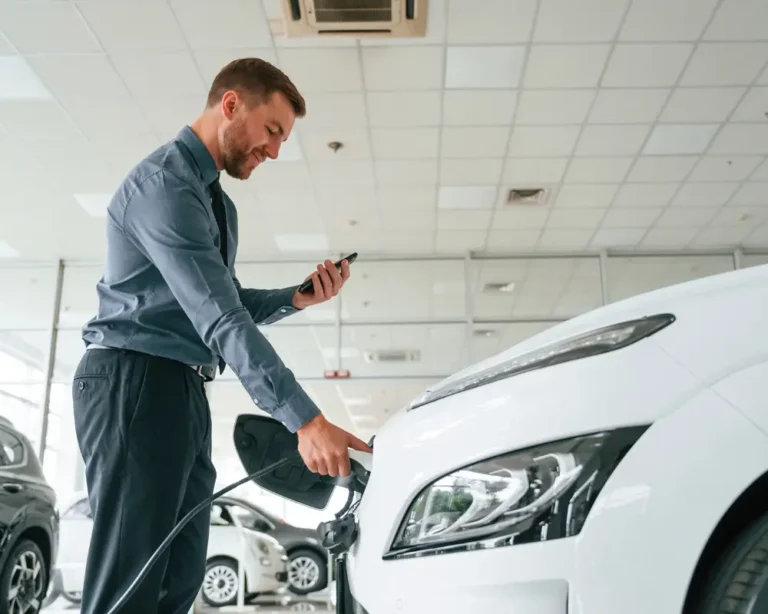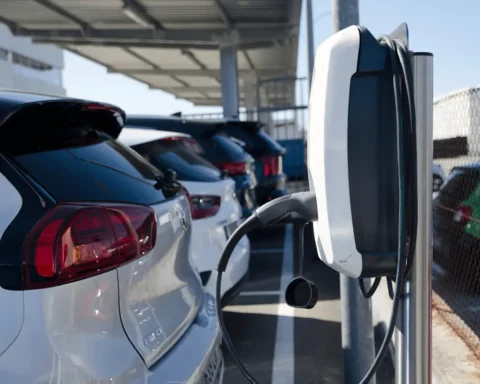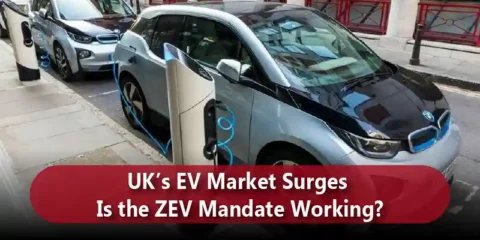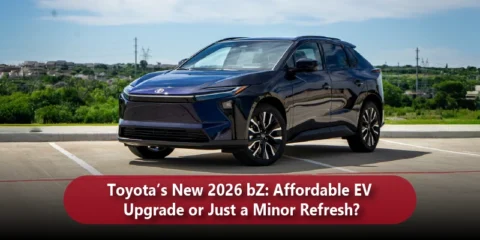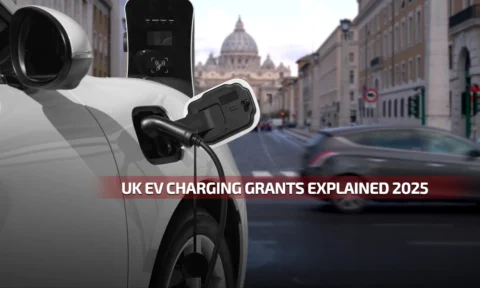Buying a used EV is cheaper and makes more sense financially, to me at least. Especially if you are against spending a ton on a new car.
Although there are some things that you need to check before you jump into that sweet deal.
You need to check for things like the battery life, charging compatibility, and software updates. I mean, these are just on top of my head, obviously, there are more factors to consider.
In 2025, we’re seeing a big jump in used EV sales—KBB reports a 32% surge in early 2023.
But growth brings risks. Some early models depreciated fast and needed expensive battery replacements.
Step in with the right checks, and you can score a dependable, affordable EV.
Do it wrong, and you might end up $8,000+ on repairs—like this unlucky Nissan Leaf buyer. Let’s walk through the must-haves before you buy.
Key Points Discussed in This Blog
- Battery health is king — How to evaluate degradation, warranty, and remaining capacity.
- Range under real conditions — Comparing dashboard readouts with original EPA numbers.
- Charging support — Does it fit your home and local network?
- Maintenance history & software — Records, recalls, and updates matter.
- Vehicle condition & mileage — How wear and tear relates to battery life.
- Warranty coverage — What still protects you and what doesn’t?
Battery Health: The Heart of Any EV
An EV’s battery is its heart.
And without a healthy heart, how do you think the EV is going to behave? It’s just going to be multiple rounds to the service center and dropping extra money.
Of course, you can use it very carefully to increase your EV’s battery life, but even then, there’s going to be some level of degradation. It’s just the nature of any battery.
The battery degrades around 2–3% per year of its original capacity.
Most modern EVs retain over 90% of their capacity after 100,000 km, which is great for the first AND the second!
Some studies show the year-by-year degradation of the battery, but the thing is, EVs have just started to become mainstream (compared to ICEs), and so, any amount of research done on them is somewhere speculative.
If we go by the math, a modern-day EV could be driven for 25 years before it reaches half the capacity it had from the factory. And there is no way to back this up because there hasn’t been an EV that has been through 25 years of usage.
Not that I’m aware of.
Anyway, here’s what I would check in the EV that I’m about to buy:
- Battery health report (like Recurrent or vsNew).
- Dashboard range vs original EPA rating—fully charged.
- Peppy vs sluggish acceleration.
- Remaining battery warranty—often valid for 8 years/100,000 miles
On Reddit, one owner said their 2022 EV with 30K miles had frequent charging cycles. They worried it would hurt battery health.
That’s why numbers and habits both matter.
Real-world Range: Don’t Trust the Numbers Blindly
Specs are neat. Real life? Not always.
Autotrader suggests testing the actual range: charge fully, check the predicted range, drive some miles, then note the drop.
If it drops 10–15% under mild conditions, that’s okay. But a 25% drop? Red flag. Remember, temperature and AC use affect range too.
Charging Compatibility: Consider the Infrastructure
EVs use different plug types and charging rates. UK models often use Type 2 and CCS. Check whether your used EV matches your home and public charging networks.
A slow 6‑7 kW home charge might be fine. But long trips? You need Level 2 or CCS fast charging. Confirm hardware even if you plan to install a home charger.
Maintenance & Software Updates
EVs have fewer moving parts, yes. But software updates can improve performance, range, and safety. Ask the seller if the car has received its updates.
Check service logs for regular checks—brakes, suspension, battery cooling. Even EVs need care.
Mileage, Condition & OEM Records
High mileage is OK — some Reddit users highlight that a Tesla with 125K miles still had only 7% battery degradation.
But sudden mileage spikes matter. A 2022 EV that racked up 26K miles in six months? That might stress its battery.
Look at interior wear, tires, and undercarriage. Clean cars may be well cared for—always pair visuals with data.
Warranty Wisdom: What Covers What
Most EV batteries still have a transferable manufacturer warranty—either 8 years or 100k miles.
Ask them the following things:
- Is the warranty transferable?
- When does it expire?
- What capacity loss does it cover? (Many cover up to 70–75%).
Knowing this can save you thousands if the battery begins failing.
The Final Check: Expert Inspection
A pre-purchase inspection by an EV specialist can catch hidden issues: leaks, thermal anomalies, and high-voltage issues.
EV-powered.uk’s checklist and Consumer Reports recommend this step.
It costs a bit, but compared to a dead battery bill, it’s smart insurance.
Should You Buy a Used EV or Not?
Buying a used EV in 2025 is a smart move, financially. Also, the tech has been way ahead of the time for a while now. So, when you think that buying a used EV might cause you to miss certain features, do not stress about it.
I stand by that. But only if you do the due diligence.
Check battery health and warranty, compare real range, confirm charging compatibility, examine history, and get a professional inspection.
Do those steps, and you’ll likely drive a reliable, efficient, and affordable EV for years. Skip them—and you might end up paying big later.


